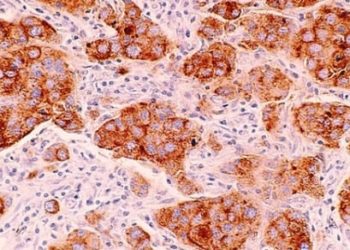Psychiatric disorders linked with increased risk of violent re-offense in released prisoners
1. This longitudinal cohort study showed that psychiatric disorders were associated with an increased risk of re-conviction for violent crimes in ex-prisoners.
2. Psychiatric disorders were associated with an increased risk of violent re-offense in both males and females, even after correcting for sociodemographic and criminological factors.
Evidence Rating Level: 2 (Good)
Study Rundown: Worldwide, ex-prisoners are convicted for repeat offenses at a high rate, and although certain psychiatric disorders are risk factors for violent crimes in the general population, it is unknown if they are similarly associated with repeat offenses in prisoners. This longitudinal cohort study attempted to investigate whether being diagnosed with a psychiatric disorder was associated with violent re-offense, whether the associations differ by type of psychiatric disorder, and whether substance use plays a role in the association. Nearly 50,000 prisoners from population-based registers in Sweden were included in the study and followed for 10 years.
The results showed that 42% of male and 64% of female participants were diagnosed with at least one psychiatric disorder while in prison, and 25% of male and 11% of female participants were re-convicted for violent crimes. Prisoners with any psychiatric disorder diagnosis had higher rates of re-offense for violent crimes than those without any diagnosis. Additionally, psychiatric disorders were associated with an increased risk of violent re-offense in both males and females, even after correcting for sociodemographic and criminological factors. Limitations of this study included using data from population-based registers which may have underestimated the prevalence of some disorders, as well as this study was only done in one country, so the results may not be generalizable to other countries.
Click to read the study in The Lancet Psychiatry
Relevant Reading: A Systematic Review of Criminal Recidivism Rates Worldwide: Current Difficulties and Recommendations for Best Practice
In-Depth [prospective cohort]: Data from population-based registers in Sweden, consisting of all convicted prisoners from 2000 to 2009 were included in the study. Patients were followed from the day of release until the first re-offense or the end of the study. Psychiatric disorders were identified in participants based on ICD-8, 9, and 10 codes before release from prison, specifically including alcohol use disorder, drug use disorder, personality disorder, attention-deficit hyperactivity disorder, other developmental or childhood disorders, schizophrenia spectrum disorders, bipolar disorder, depression, and anxiety disorder. The primary outcome of the study was any violent crime conviction after release from prison.
47,326 prisoners (43,840 males and 3,486 females) were included in the study. 18,563 (42%) males were diagnosed with at least one psychiatric disorder prior to release, and 10,884 (25%) were re-convicted for violent crimes during the follow-up period. In contrast, a larger percentage of females (2,233, 64%) were diagnosed with a psychiatric disorder while in prison but a smaller proportion (379, 11%) were reconvicted for violent crimes than males. In both males and females, psychiatric disorders were associated with an increased risk of violent re-offense, even after adjusting for sociodemographic and criminological factors (males: [hazard ratio [HR] 1.63, 95% CI 1.57-1.70]; females: [HR 2.02, 95% CI 1.54-2.63]). Additionally, all individual psychiatric disorders were associated with an increased risk of violent re-offense, with the strongest associations for alcohol and drug use disorders, personality disorder, ADHD, other developmental or childhood disorders, schizophrenia spectrum disorders, and bipolar disorder. However, there was no significant association between substance use disorders and psychiatric disorders.
Image: PD
©2015 2 Minute Medicine, Inc. All rights reserved. No works may be reproduced without expressed written consent from 2 Minute Medicine, Inc. Inquire about licensing here. No article should be construed as medical advice and is not intended as such by the authors or by 2 Minute Medicine, Inc.







